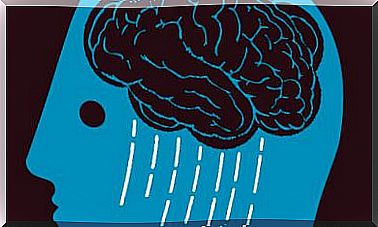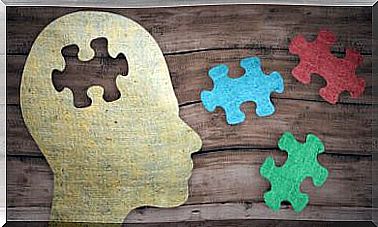What Is Binge Eating Disorder?

When no one is looking, she goes to her best friend: the pantry. Chocolate, cakes, chips… everything works. She eats anxiously, quickly and greedily. When she’s done, she never vomits. She just feels great remorse and guilt over having eaten this way.
She is insecure and needs to be slim to feel beautiful. She has followed diets time and time again and starved herself. Her body is a prison, and her worst enemy is herself.
When she comes home and takes off her heels, she looks in the mirror and feels a deep sadness that can only be subdued by not eating or eating too much. She has fallen into a spiral she does not know how she can climb out of. That’s her biggest secret.
The story we just told could be about a person with binge eating disorder. This disorder affects more and more people every day, but it is difficult to diagnose.
It is more common for women to suffer from it than men, and it tends to affect people who are overweight and who often expose themselves to very restrictive diets. It is also a much more common disorder than anorexia or bulimia.
Signs of binge eating disorder
- The victims quickly consume large amounts of food (binge eating). They also eat even though they are not hungry, until they feel full or even nauseous. The state of anxiety before binge eating should be blamed for this behavior.
- They always do it in secret because of fear or shame. At night, when no one is home, after a time of emotional stress etc.
- They mainly eat when they are under pressure or feel psychologically weak.
- During or after this binge eating, they are filled with a great sense of guilt and / or shame.
- Unlike other eating disorders, such as anorexia and bulimia, there are no post-event cleansing methods. For example, vomiting, exercising, fasting, etc.
- It tends to affect people suffering from stress, anxiety or depression. This is usually associated with great dissatisfaction with physique or weight, low self-esteem or other types of emotional problems.
- People who suffer from binge eating have abnormal eating habits and frequent fluctuations in weight.
- They have a constant feeling of having to follow strict diets to lose weight. The stricter the diet, the higher the proportion of chaos and disorder.
- If people exhibit this behavior for at least two days a week for a period of at least six months, they may suffer from binge eating disorder.
How can we help someone who suffers from binge eating disorder?
If you suspect that a friend, family member or even yourself may be suffering from binge eating disorder, the best thing you can do is go to a psychologist or psychiatrist as soon as possible.
This can help you through individual therapy or group therapy that combines nutrition with psychological intervention. Only a licensed expert in the field can evaluate whether a patient needs medication to block his impulses.
These therapies try to help us to have better food intake to combat the disorder, which can lead to unwanted consequences both mentally and mentally.









